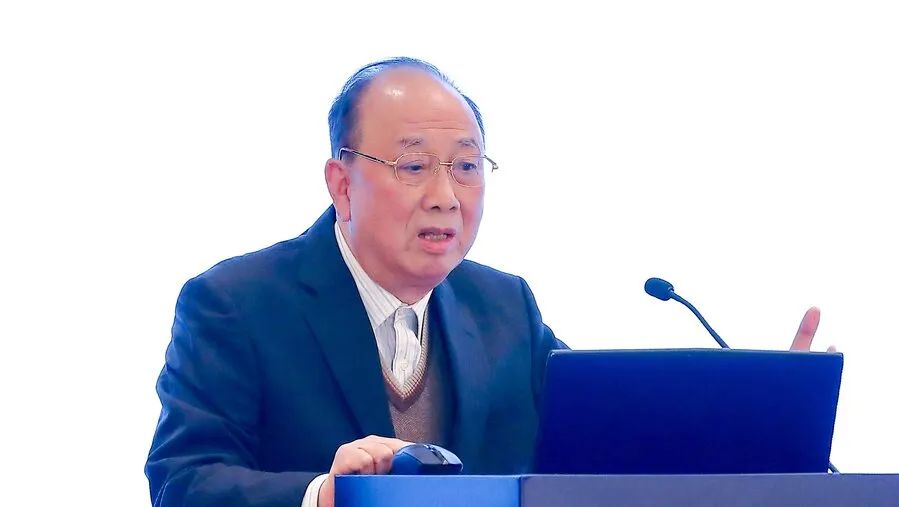Zhao Qizheng: Develop Brands to Strengthen the Soft Power of Shanghai
In order to promote the construction of Shanghai as a socialist cosmopolitan cultural metropolise, build a platform for promoting culture and talent exchange, interaction and integrated development, and display and share the wisdom Shanghai cultural talents, the Shanghai High-end Forum on Promoting Culture and Talents sponsored by the Publicity Department of the CPC Shanghai Committee and hosted by the Shanghai Federation of Social Sciences Associations was held in the city on April 25th, 2023.

Focusing on the theme of “Chinese Path to Modernization and Construction of the Soft Power of Shanghai”, Zhao Qizheng (Former Director of the State Council Information Office of China), Quan Heng (Secretary of the Party Committee of the Shanghai Academy of Social Sciences), Liao Changyong (President of Shanghai Conservatory of Music), Zhang Weiwei (President of the China Institute of Fudan University), and Ma Boyong (a famous writer) delivered their keynote speeches.
The following is an excerpt from Zhao Qizheng’s keynote speech at the forum---“The History of the Struggle for China’s Modernization in the Chinese Way that I Witnessed”.

Branding is the simplest way to characterize a city and express its soft power. Creating imaginative and expressive phrases is an effective means to promote the communication of urban brands. Shanghai should consider its own position in the global scheme and further explore for the most concise yet powerful brand expressions of its cultural soft power.
Shanghai abounds in brands. For example, Shanghai is the birthplace of the Communist Party of China, featuring revolutionary culture, Jiangnan culture and Shanghai culture. The Shanghai urban spirit cultivated on this basis is quite distinctive. General Secretary Xi Jinping’s characterization of the city as “inclusive, excellent, open-minded, sagacious, generous and modest” is concise, profound and catchy, and encapsulates the widely spread Shanghai brand. In addition, “mutual trust, mutual benefit, equality, consultation, respect for diversity of civilizations and pursuit of common development” is the spirit of the SCO and the brand of Shanghai. They embody the Shanghai Spirit, expressing and explaining Shanghai in China and to the world.
Shanghai should express itself in different ways in different scenes, to different audiences. In the early 1950s, a professor at the University of Maryland wrote a book Shanghai, the Key to Modern China based on his observational trips. In the book he straightforwardly urged people to come to Shanghaisaying, “Do you want to learn about China? Please go to Shanghai.” In the early years of Pudong’s development and opening up, when foreign politicians or entrepreneurs came to Shanghai, I showed them the world map. The Asia-Pacific Economic Corridor goes from Tokyo, Seoul, Shanghai, Hong Kong, Taipei to Singapore, and Shanghai is the middle point of the course. If you go disembark at Shanghai, you will find yourself in the economically developed area of the Yangtze River Delta and the prosperous coastal area. Turn around, youface the Pacific Ocean, close to both Northeast Asia Southeast Asia. Moreover, the emerging Pudong New Area had a perfect investment environment. So they were convinced that Shanghai was a good choice. They entered China at Pudong New Area and actively invested in Shanghai.
To strengthen our soft power, we need to have cultural confidence. Here is an example: In 1876, the name “Jingju” was first coined in Shanghai-based Shen Bao. When Mei Lanfang went to Japan to perform in 1930, Jingju was translated by Americans as “Peking Opera”. When foreigners first heard of Peking Opera, they misunderstood it as something largely similar toTurandot and La Traviata. As China was lacking in cultural confidence in those years, Chinese people were in the habit of borrowing foreign translations of Chinese terms, many of which are misleading. As the transliteration Jingju was first coined and used in Shanghai media, let’s correct the English translation “Peking Opera”. Let’s start the job in Shanghai and substitute it with “Jingju”!

